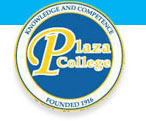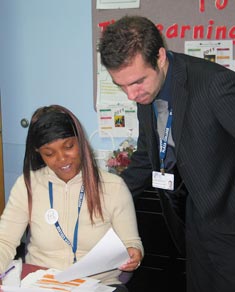“Teaching History”
By Professor Jonathan Alexandratos
When I was just starting the 10th grade, I got left behind on a field trip to an art gallery in downtown Manhattan. It was one of those I-went-to-the-bathroom-and-when-I-came-out-they-were-all-gone sort of things. Now this was the first school I attended in New York City, having grown up in Knoxville, Tennessee. On top of that, 9/11 had just happened months before, so safety was no arbitrary concern. Deciding not to just go back to school – no high school mind is wired for logic! – I wandered lower Manhattan until about 2:30pm, when I took the 1 train back uptown to try and resuscitate my petrified teachers. Reflection, 10 years of it, has led me to understand fully now what I only hypothesized about then: my lonely jaunt taught me more than the organized field trip could have. It allowed my natural curiosity, which has been troublesome since birth, the freedom to run wild.
As I slowly meandered the streets, simply guessing at which way was the right one, I learned from experience: this road leads here, that park runs along there, so-and-so once stood here, and so on. The grand stage show of New York City had been replaced by the ropes and pulleys that make it run. Curiosity didn’t kill the cat; it just showed me that there wasn’t really a cat there in the first place. But this is an article about teaching at Plaza College, so I’ll halt this story at the feline imagery.
I think the tale does lend itself to analogy, though. Teaching is a field that comes with a great deal of work prepared for you. Many smart people have written many more books – some interesting, some not – about what anyone wanting to go into a given discipline should know in order to reach a certain level of literacy. Teaching is the art gallery – everything you need to know is there. However, it’s been my experience so far that students don’t get too excited about what’s already there. They get excited about taking everything apart and putting it back together, from the ground up: the process of getting lost outside the art gallery. Or maybe that’s what I get excited about and I’m projecting that onto students at large, I don’t know. Either way, it points to an inherent excitement generated by curiosity.
And that, for me, is the essence of teaching my history class: exploring the world around the textbooks, taking the presumed history apart and reassembling it, seeing if it still looks like it used to, once it’s put back together again. How does one accomplish this? Well, first, yes, read the textbooks, read the primary source documents – these are all essential. But then talk about them in a way that isn’t conventional. I gave my class scenarios, all of which I made up; they were things like, “What if John D. Rockefeller hit Thomas Edison with his car? What would the two men say to each other?” or “What if Andrew Carnegie and Henry Ford had to compete for the last factory on Earth? Who is more deserving? Why?” Students prepared skits from these prompts – some of which they completely memorized on their own in one class period, without that even being a requirement. They were all not just highly creative, but deeply in pursuit of what made these historical figures tick. These students put something out into the world that was (a) historically relevant and (b) not there before – if every historian could be so lucky! They truly displayed the fact that knowing what something, or someone, is called pales in comparison to being curious about what they did.
The day after the aforementioned field trip incident – and after my scolding from the principal – I wasn’t so much thinking about going back to that art gallery, but about seeing what nooks and crannies I had missed. That has been my aim in teaching ever since, to make students feed off curiosity. Relishing the feeling of digging, not because an assignment told you to, but because you are deeply concerned about what you might have missed. To do that, you often times have to deconstruct a lot of work. You run into dead-ends. You get discouraged, yes, sometimes even scolded. But the reward for that curiosity is too great not to keep the momentum going: the joy of figuring something out.





